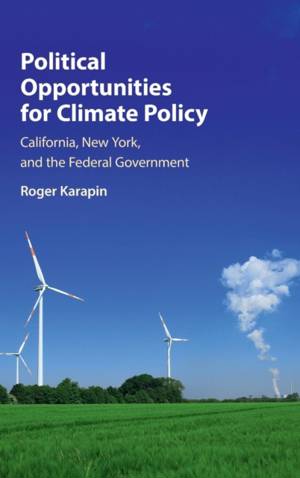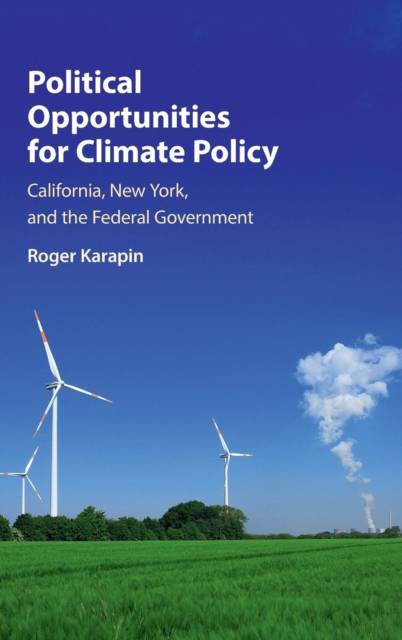
Bedankt voor het vertrouwen het afgelopen jaar! Om jou te bedanken bieden we GRATIS verzending (in België) aan op alles gedurende de hele maand januari.
- Afhalen na 1 uur in een winkel met voorraad
- In januari gratis thuislevering in België
- Ruim aanbod met 7 miljoen producten
Bedankt voor het vertrouwen het afgelopen jaar! Om jou te bedanken bieden we GRATIS verzending (in België) aan op alles gedurende de hele maand januari.
- Afhalen na 1 uur in een winkel met voorraad
- In januari gratis thuislevering in België
- Ruim aanbod met 7 miljoen producten
Zoeken
Political Opportunities for Climate Policy
California, New York, and the Federal Government
Roger Karapin
Hardcover | Engels
€ 229,45
+ 458 punten
Uitvoering
Omschrijving
Analysis of climate change policies focuses mainly on the prospects for international agreements or how climate policies should be designed. Yet effective domestic climate policies are essential to any global solution, and we know too little about how and why such policies are adopted. Political Opportunities for Climate Policy examines in depth the causes of effective climate policies in the United States, using a statistical analysis of all fifty states and long-term case studies of California, New York, and the federal government. Roger Karapin analyzes twenty-two episodes in which policies were adopted, blocked, or reversed. He shows that actors and events have positively affected climate policy making, despite the constraints presented by political institutions and powerful fossil fuel industries. Climate policy advocates have succeeded when they mobilized vigorously and astutely during windows of opportunity - which opened when events converged to raise both problem awareness and the political commitment to address them.
Specificaties
Betrokkenen
- Auteur(s):
- Uitgeverij:
Inhoud
- Aantal bladzijden:
- 364
- Taal:
- Engels
Eigenschappen
- Productcode (EAN):
- 9781107074392
- Verschijningsdatum:
- 15/04/2016
- Uitvoering:
- Hardcover
- Formaat:
- Genaaid
- Afmetingen:
- 152 mm x 229 mm
- Gewicht:
- 703 g

Alleen bij Standaard Boekhandel
+ 458 punten op je klantenkaart van Standaard Boekhandel
Beoordelingen
We publiceren alleen reviews die voldoen aan de voorwaarden voor reviews. Bekijk onze voorwaarden voor reviews.









